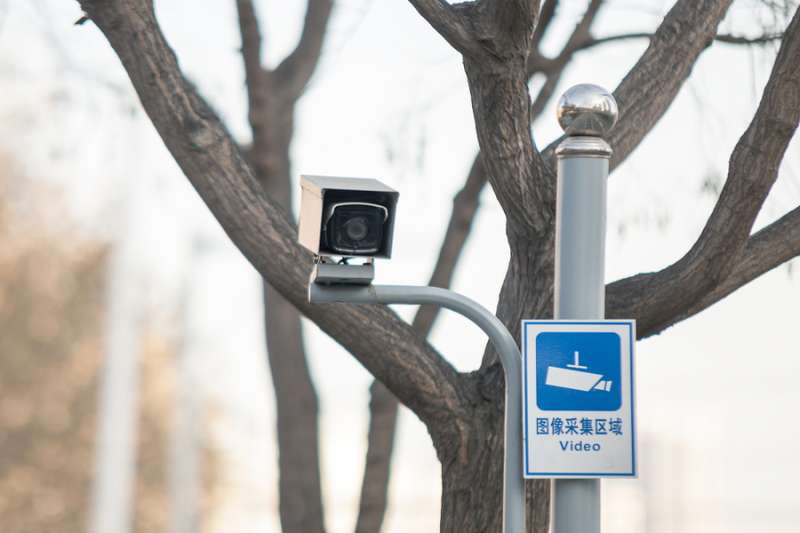As the 30th anniversary of the Tiananmen Square protests approaches, the Chinese Communist Party is utilizing authoritarian tactics old and new to crack down on Christians.
High tech means of controlling religious observance include facial recognition surveillance and a smartphone app that ranks citizens' party loyalty.
On the local level, however, government officials are still manipulated with similar methods used 30 years ago to implement the one child policy, in which local officials were heavily pressured to force women into abortions, according to China expert Steven Mosher.
Local government officials are punished if their superiors find evidence of unauthorized religious expression in the areas under their control via a “job responsibility contract” system, Mosher told CNA.
"What that contract says is that you must enforce the new restrictions on religious behavior. You can't allow children under the age of 18 to attend religious services. You can't allow any unauthorized religious gathering to take place. If it does, you find the people present and you can arrest the leaders,” Mosher, president of the Population Research Institute, said.
Changes in 2018 within Chinese governance shifted direct control of all religious affairs in China to the Chinese Communist Party’s United Front Work Department, an agency tasked with ensuring that groups outside of the CCP, ethnic minorities like Tibetan Buddhists, Xinjiang Muslims, Hong Kong democracy activists, and the Catholic Patriotic Association, are following the party line.
Chinese President Xi Jinping has called the United Front Work Department one of his “magic weapons,” used to co-opt and control.
“Local officials have been given the green light to intensely persecute the local church and the Patriotic church is not going to be exempt,” Mosher said. “We now know that Patriotic churches are being destroyed, not just underground churches.”
In Hebei province, there are 24 village churches currently slated for destruction, according to Mosher.
In September 2018, the Vatican signed a provisional agreement with the Chinese government on the appointment of bishops, intended to unite China’s estimated 12 million Catholics who worship in both underground and registered churches.
The terms of this Sino-Vatican agreement have not been made public, something that Mosher says has been used against Catholics living in China.
“The problem with any secret agreement is that either side can misrepresent it at no cost because there is nothing to compare their statements with,” he said.
“Clearly the Chinese Communist Party’s United Front Department is misrepresenting the Sino-Vatican agreement … telling bishops and priests that they must join the Catholic Patriotic Association. Now, I don't think that is what the Vatican intended,” Mosher continued.
“It would be helpful if the Secretary of State would speak out and say that the agreement does not call for priests and bishops in China to join the Patriotic Association,” he said. “The only kind of pressure that the People's Republic of China responds to is external pressure. They deal with internal pressure by setting up reeducation camps and filling them with dissidents.”
In China’s Xinjiang region, between 800,000 to 2 million Uyghur Muslims have been detained and sent to “re-education camps,” where they have been subjected to abuse and political indoctrination.
Chinese authorities in the region use high-tech surveillance with facial recognition and an app tracking its user’s location to intensely monitor the Uyghur ethnoreligious minority, a technological model that the Chinese could apply to expand to other parts of the country in the future.
Christian churches throughout China have been equipped with 24-hour CCTV surveillance. Beijing’s largest Protestant church was forced to close last September after its pastor refused a government order to allow face-recognition cameras to be installed on his pulpit.
Mosher told CNA that he is particularly alarmed by how China’s social credit score system is being used to limit Christians educational and employment opportunities and other social benefits, including the ability to travel.
“Being a believer is a big hit to your social credit score ... If your social credit score gets too low then you can't get a passport, you can't get an exit visa, you can't buy a plane ticket,” he said.
A Chinese citizen can boost their social credit score by earning points on the Chinese Communist Party’s app, Study the Great Nation – the most downloaded app in China.
The app, developed by the CCP’s Propaganda Department, includes news and speeches by Xi and socialist theories with daily quizzes on the information. User data is kept by the Propaganda Department.
“They are saying to the 94 million members of the Chinese Communist Party: You cannot be a believer in anything, but the party. You need to download your Study Xi Strong China app on your phone. You need to do your half an hour of homework everyday. You need to answer the questions correctly in order to stay a party member in good standing,” Mosher explained.
However, Mosher says he finds hope in the fact that there may be more Christians today in China than there are members of the Chinese Communist Party. Open Doors estimates that there could be more than 97 million Christians in the country.
Mosher stressed that Catholics around the world need to remember to pray for the Chinese people.
“The battle goes on not just in the natural, but in the supernatural all the time. It never hurts to say more prayers, and they certainly need our prayers,” he said.

